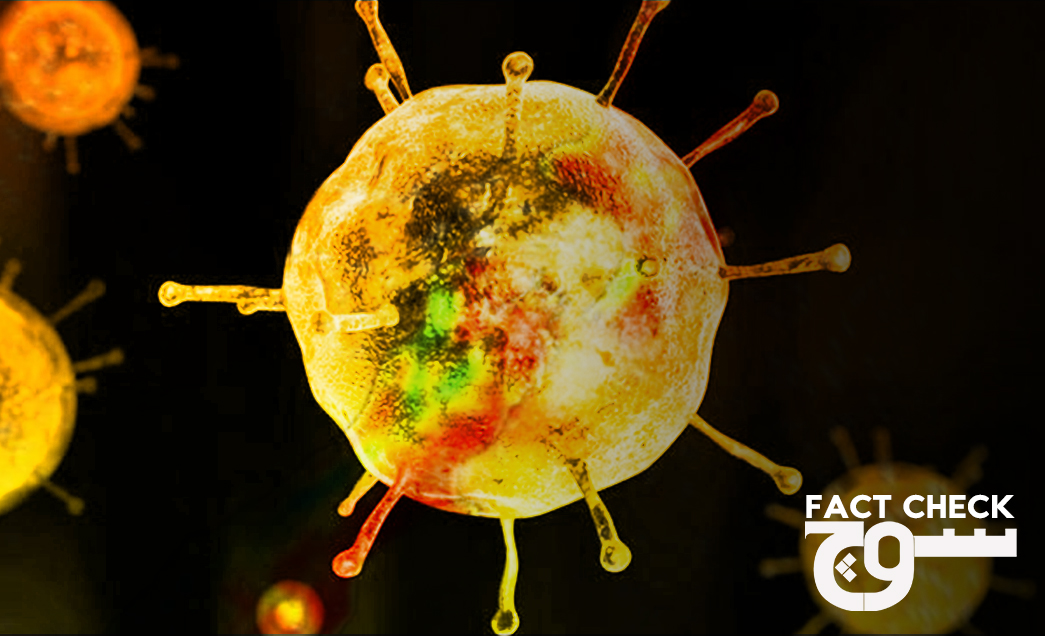
Claim: COVID-19 cannot be transmitted in areas with hot and humid climate.
Fact: The World Health Organisation and numerous infectious diseases specialists state that COVID-19 can indeed be transmitted in hot climates.
Recently, there have been rumours that claim that the 2019 Novel Coronavirus, or COVID-19, is a seasonal virus, which means that the reason it has not spread as rapidly in countries such as Pakistan and India compared to European countries is the relatively higher temperature levels of the South Asian regions.
These rumours were given more legitimacy after the United States President Donald Trump spoke at a rally in Manchester, US. “The virus that we are talking about, many people say it will go away in April with the heat,” said Trump.
However, the World Health Organisation (WHO) clearly states, “ From the evidence so far, the COVID-19 virus can be transmitted in ALL AREAS, including areas with hot and humid weather. Regardless of climate, adopt protective measures if you live in, or travel to an area reporting COVID-19.”
While some experts have suggested a correlation between COVID-19 and the weather, there is no evidence to suggest that the hot weather would stop transmission of the virus entirely.
Dr John Nicholls, a pathology professor at the University of Hong Kong, was quoted by AccuWeather saying that there are three things the coronavirus does not like: sunlight, temperature and humidity. He, therefore, believes that weather conditions will be the key factor in the demise of the novel coronavirus, referencing the SARS outbreak from 2002 and 2003.
“Sunlight will cut the virus’s ability to grow in half, so the half-life will be 2.5 minutes, and in the dark, it’s about 13 to 20 [minutes]. Sunlight is really good at killing viruses,” Nicholls said.
National Geographic cited Ian Lipkin who is the director of the Columbia University’s Center for Infection and Immunity, saying that sunlight, which is less abundant in winter can also help break-down viruses that have been transmitted to surfaces. He said, “UV light breaks down nucleic acid. It almost sterilises [surfaces]. If you’re outside, it’s generally cleaner than inside simply because of that UV light.” Effective at killing bacteria and viruses, UV light is often used in hospitals to sterilise equipment.
Deutsche Welle also cited a virologist from Germany’s Centre for Experimental and Clinical Infection Research, Thomas Pietschmann, who said the coronavirus is “not very heat-resistant, which means that the virus quickly breaks down when temperatures rise”.
From the above quotes by experts, it seems clear that there is a correlation between weather conditions and the spread of the virus. However, the proposition that the virus doesn’t spread in regions with warmer climate is false. What is known, however, is that the virus doesn’t survive well in a warmer and more humid environment. This is not synonymous with the former.
Al Jazeera quoted Dr Edsel Maurice Salvana, who is the director at the Institute of Molecular Biology and Biotechnology at the University of the Philippines saying that a direct correlation between warmer countries and slower spread of the virus is a myth. Warmer weather may deactivate the virus faster if it is on surfaces or in the air thereby impeding it from travelling farther and faster, but it does not stop the virus from being transmitted through for example someone’s coughing or sneezing. Furthermore, warm weather reduces the survival time of the virus but it does not obliterate it.
Dr Abdul Ghafur, an infectious disease specialist based in the Indian city of Chennai, was quoted by Al Jazeera saying that the virus travels farther and persists longer in cold-weather regions such as those in Europe and parts of the US because of the general dryness of the air and lower temperature. But even as the weather gets warmer in these countries, Ghafus does not expect the virus to go away completely. This underscores the importance of personal hygiene as a primary means of impeding transmission.
Summary: According to the World Health Organisation and numerous infectious diseases specialists, COVID-19 can indeed be transmitted in hot climates. There is no evidence to suggest that hot weather would kill or deter the virus. However, the exact correlation between the weather and COVID-19 remains unclear.
